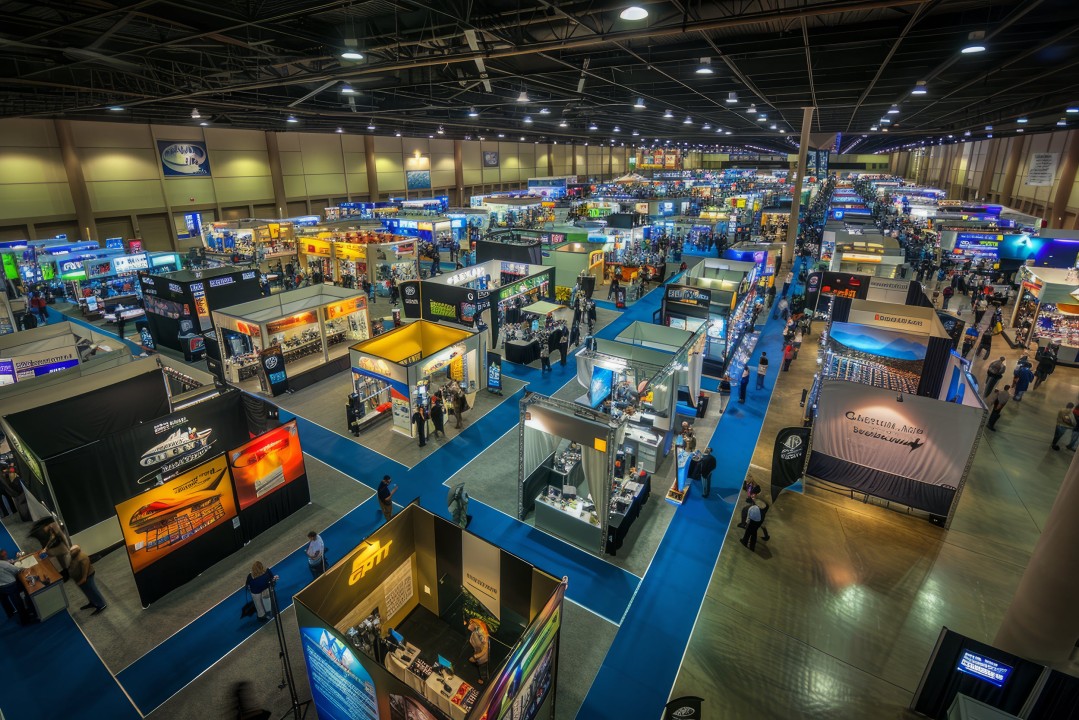With their bustling crowds and diverse exhibitors, trade shows can be logistical puzzles that demand meticulous planning and execution. The success of your exhibit hinges not only on its visual appeal but also on the behind-the-scenes orchestration. A tradeshow exhibit planner specializes in coordinating and executing the strategic planning, design, and logistical aspects of a company’s presence at trade shows and exhibitions. They play a crucial role in ensuring that the exhibit aligns with the business goals, attracts the target audience, and runs smoothly from setup to teardown.
They plan tradeshow exhibit planner services in collaboration with clients to understand their objectives, guiding them through the entire process from selecting optimal booth locations and designing visually appealing displays to managing logistics, staffing, and post-event analysis. By combining creativity with meticulous organization, these professionals contribute to the overall success of trade show participation, allowing businesses to make a lasting impression on their audience and achieve measurable results.
In this blog, we delve into the critical role of tradeshow exhibit planners in navigating logistics to ensure a seamless and successful event.
Understanding the Logistics Landscape:
Tradeshows come with unique challenges – from booth setup and transportation to coordinating staff schedules. Rise Exhibits & Environments can leverage their expertise to comprehensively understand the logistical landscape of each event, identifying potential bottlenecks and formulating strategies for efficient resolution. Work with an exhibit planner with experience in your trade show’s specific venue and industry for optimal logistics management.
Strategic Booth Placement and Setup:
Exhibit planners collaborate closely with event organizers to secure prime booth locations that align with your objectives. They strategize booth layouts to optimize traffic flow and create an inviting space. From ensuring electrical connections to coordinating with decorators, exhibit planners handle the intricate details of booth setup, allowing your team to focus on engaging with attendees. Prioritize booth locations near high-traffic areas or industry hotspots to maximize visibility.
Coordination of Shipping and Handling:
Transporting exhibit materials, displays, and promotional items to and from the venue can be a logistical puzzle. Exhibit planners streamline this process by coordinating shipping logistics, managing customs requirements, and ensuring timely delivery, sparing your team from the headaches of transportation hassles. Have a detailed checklist for all exhibit materials, and work with reliable shipping partners.
Staff Training and Coordination:
A well-trained and coordinated booth staff is instrumental in event success. Exhibit planners facilitate staff training sessions, ensuring your team is well-versed in product knowledge, engagement strategies, and lead capture techniques. They also manage staff schedules, breaks, and rotations to maintain a vibrant and welcoming booth throughout the event. Implement a communication system to inform your team about schedule changes or urgent updates.
Post-Event Analysis and Improvement Strategies:
Once the event concludes, exhibit planners don’t rest. They conduct post-event analyses, evaluating the logistics, attendee engagement, and overall success of the exhibit. This valuable feedback loop allows for continuous improvement, refining strategies for future events and ensuring an evolving, practical approach to logistics management. Gather feedback not only from your team but also from the exhibit planner to identify areas for enhancement.
Custom trade show exhibit design can be a powerful tool for businesses seeking to create a unique and memorable presence at industry events. By tailoring the exhibit to align with the brand identity and marketing goals, companies can effectively stand out in the crowded trade show environment. A well-executed custom design captures attention and facilitates meaningful engagement, making it a key component in maximizing the impact of trade show participation.
This tailored approach allows businesses to convey their brand message, showcase products or services, and create a lasting impression on attendees. Custom trade show exhibit design involves thoughtful consideration of the target audience, incorporating interactive elements, and staying abreast of design trends to ensure a visually compelling and contemporary presentation.
In conclusion, the role of tradeshow exhibit planners in navigating logistics is paramount to achieving a seamless event execution. By entrusting these experts with the intricacies of planning and execution, businesses can focus on making meaningful connections and showcasing their offerings, confident that the logistical puzzle is in capable hands. Happy exhibiting!
